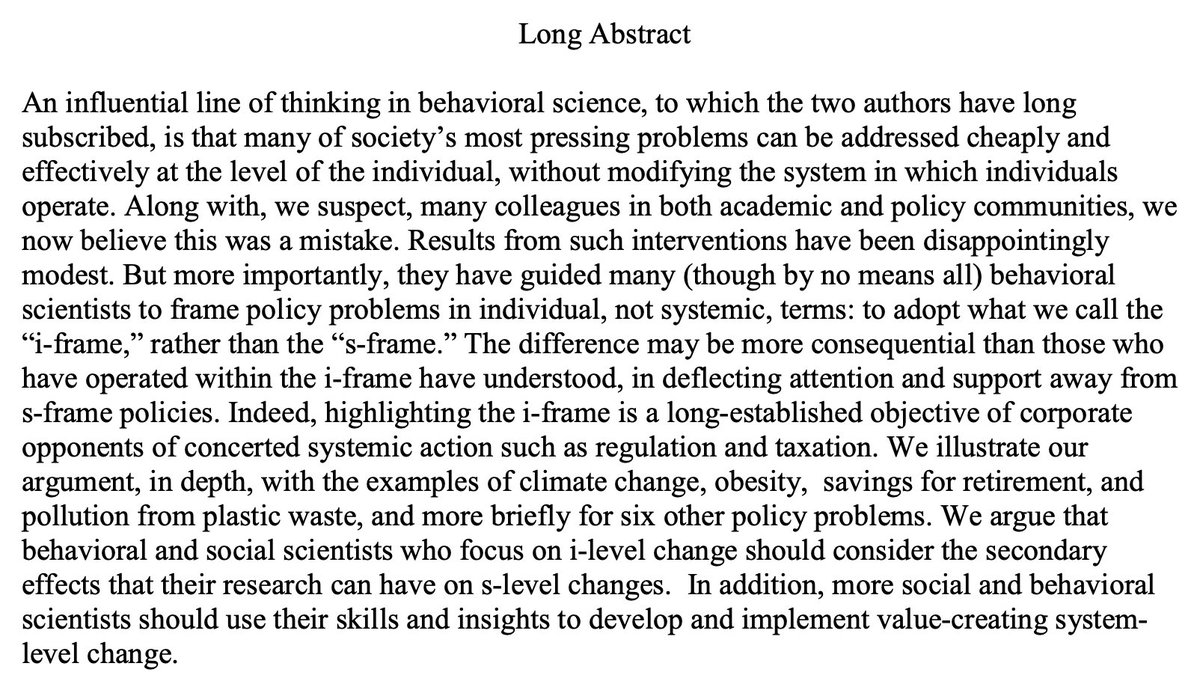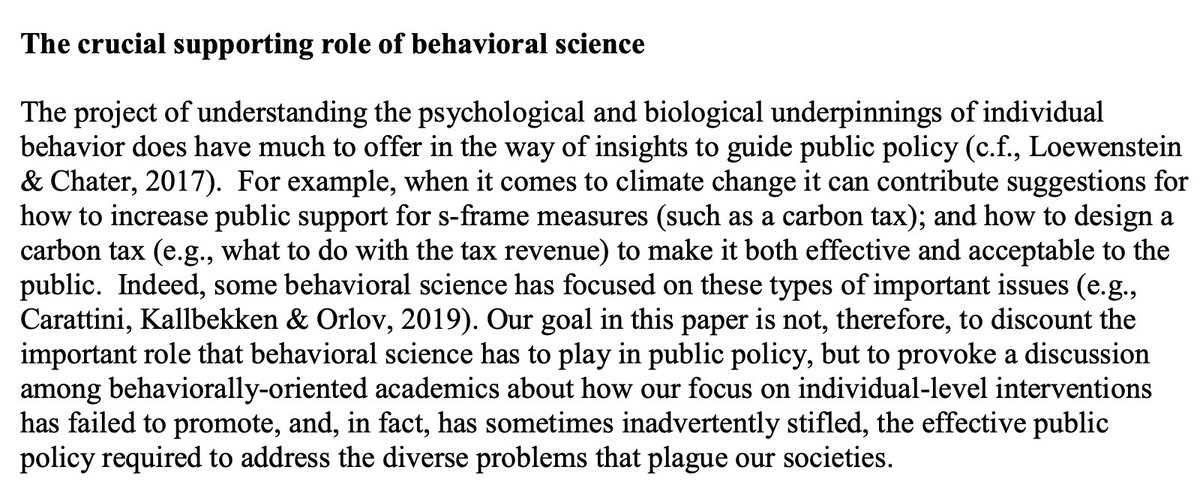
1/6 Future discounting is a robust tendency in individual decision-making, sometimes taking the form of "present bias".
But can this individual bias explain the obesity epidemic during the last 50 years, when there is no evidence for increased present bias in the same period?
But can this individual bias explain the obesity epidemic during the last 50 years, when there is no evidence for increased present bias in the same period?
2/6 Probably not, or only a very small part of it.
As Chater & Loewenstein point out in this thoughtful working paper: Although present bias is real, historical change in obesity is more likely the product of systemic factors in society.
papers.ssrn.com/sol3/papers.cf…
As Chater & Loewenstein point out in this thoughtful working paper: Although present bias is real, historical change in obesity is more likely the product of systemic factors in society.
papers.ssrn.com/sol3/papers.cf…

3/6 Similar questions arise for economic undersaving and climate change.
In all these cases, psychology & behavioral science tend to look for causes & solutions at the level of the individual decision-maker, because that is the level of analysis our disciplines are founded on.
In all these cases, psychology & behavioral science tend to look for causes & solutions at the level of the individual decision-maker, because that is the level of analysis our disciplines are founded on.
4/6 To be sure:
Getting a better understanding of how individual limitations can make the population vulnerable to some societal changes while benefitting from others, can provide important input to better policy & system-level solutions.
Getting a better understanding of how individual limitations can make the population vulnerable to some societal changes while benefitting from others, can provide important input to better policy & system-level solutions.
5/6 But, focusing so much on the individual decision-maker can have the unintended consequence of individualizing collective problems.
Eg @davidhagmann et al found that introducing a green nudge can diminish support for a (much more effective) carbon tax.
nature.com/articles/s4155…
Eg @davidhagmann et al found that introducing a green nudge can diminish support for a (much more effective) carbon tax.
nature.com/articles/s4155…
6/6 So, in conclusion, the paper by Chater & Loewenstein gives us all a serious challenge (FT: ft.com/content/a23e80…).
Individual-level behavioral science can still have an important role in public policy, but a better connection to the "s-frame" of systemic factors is needed.
Individual-level behavioral science can still have an important role in public policy, but a better connection to the "s-frame" of systemic factors is needed.

• • •
Missing some Tweet in this thread? You can try to
force a refresh



